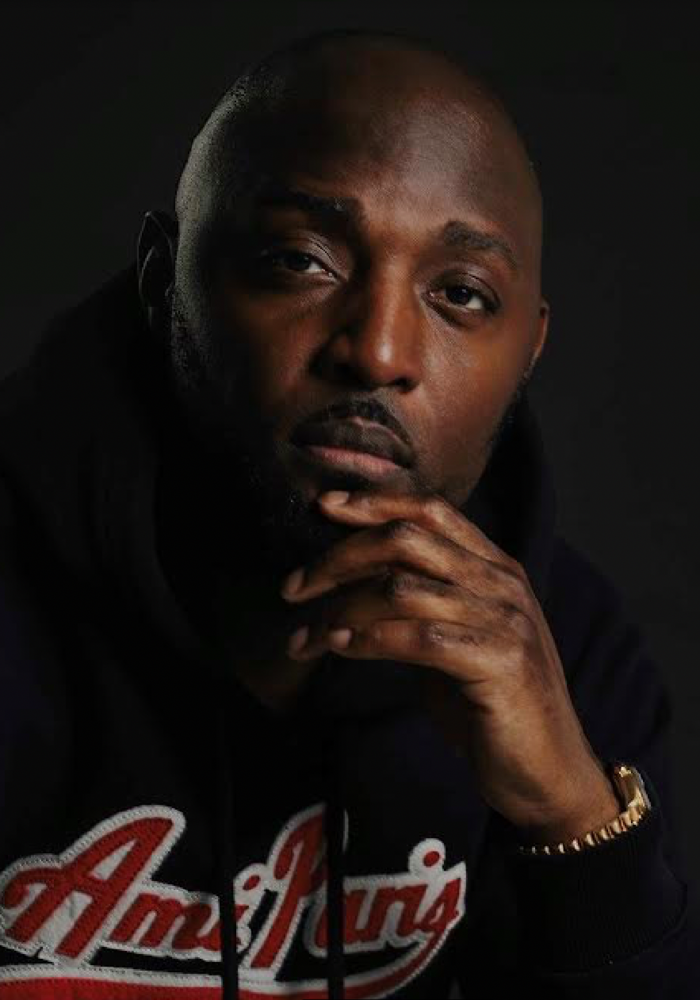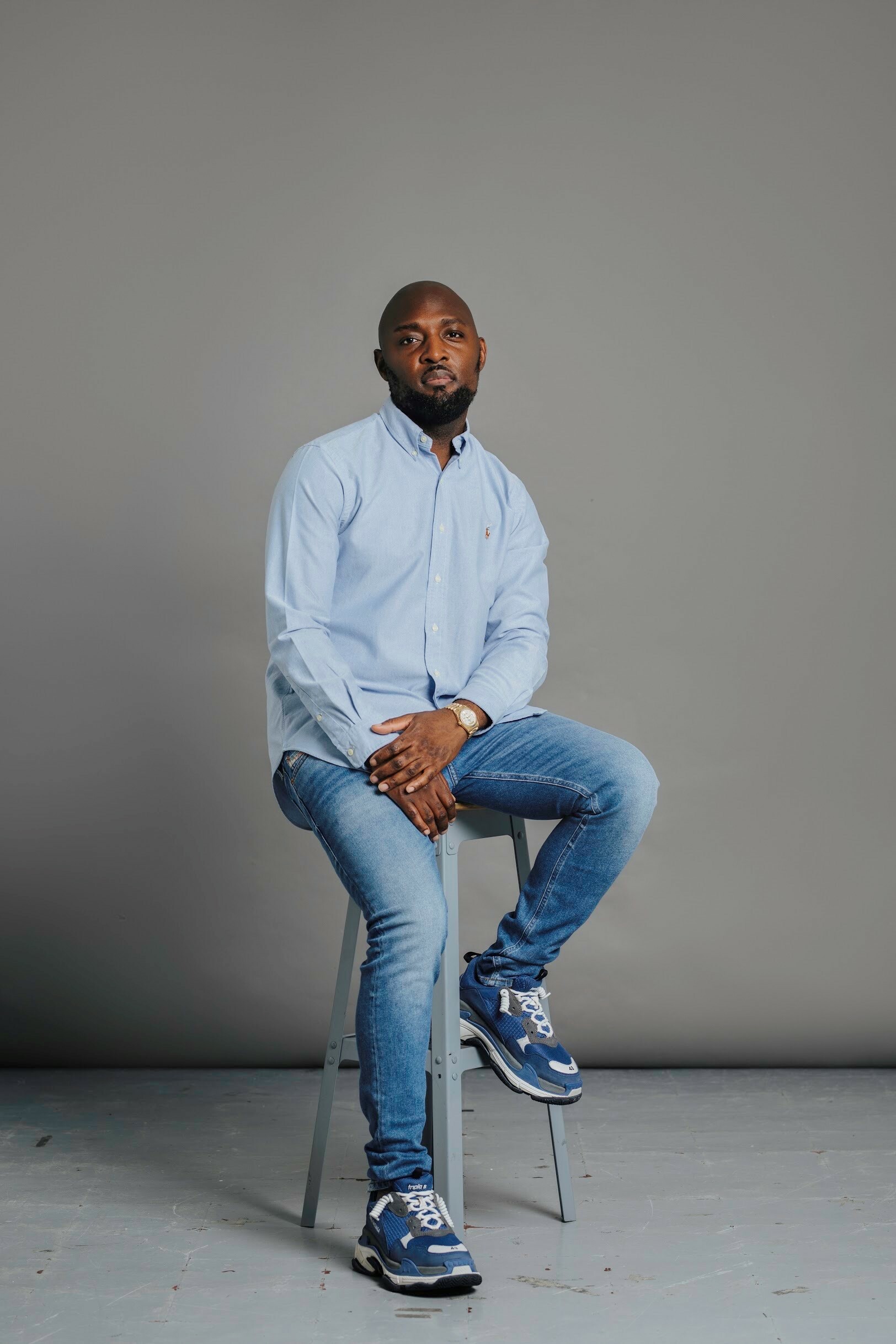Tell us about how you got to where you are now.
My entire career, what I do every day, hasn’t really changed, but the consequences have. Ever since I was a teenager I’ve woken up in the morning, listened to new music, and the music I’m most passionate about I shout about and argue with people about! I started off in secondary school in the late ‘90s, and it was the height of UK garage. Me and my friends all wanted to be garage emcees and rappers, and what I realised early on was that I was terrible at rapping and emceeing [laughs]. But what I did notice was that I had a bit of creative flair in helping amplify my friends in the school playground. So I’d bring my mini DV camera in and film people and make little flyers for contests that were put on in the common rooms. And without realising it, I became a bit of a promoter within the school playground.
Then a bit of luck came my way, and if you look at most people who have had a level of success, there is an element of luck. My little story is that my mum had a job where they gave her a computer to take home, and this was at the turn of the century when not everyone had a computer at home. This computer was loaded with the Adobe suite, Microsoft Office etc. I was the only person in my area who had a computer like that at home in my social circle, so all of the local artists - mainly rappers - would come to my yard so I could help make their CD covers, burn CDs for them, help them write press releases etc. I became a bit of a media mogul on my estate [laughs]. Also, my best friend went from being a hit in the playground to being hot in the area to then being played by some 1Xtra DJs and some pirate radio DJs. I started managing him, so via that I got my foot in the door by networking. That was one path.
There was a second path I took concurrently. I was working in retail to put money in my pocket, and then doing work experience with different media companies. I thought that if I could get my foot in the door, then I could use that experience to hop, skip, and jump to a bigger company. I got a job at a company called Durrants, which was a media monitoring company. I had a list of clients and I had to read through hundreds of news articles and tag all the mentions of them. What I didn’t realise at the time was that the junior staff were given the massive companies, as they were the ones mentioned the most. So, I was given BBC, Coca-Cola, and I was like, ‘yeah, I’m killing it, they’ve given me all these massive clients’, but it was the equivalent of counting paper clips [laughs]. But that was incredible, because I was basically reading every day about the BBC and, via osmosis, was learning at a really high corporate level how the BBC worked.
So when a job came up in the BBC marketing department, one of the key things you needed to know was how the BBC worked, and current affairs. I went to the interview and it seemed clear that I didn’t have the right level of experience required for the job, and I was literally about to leave - my hand was on the door handle - and one of the guys called me back and said, ‘Austin, it says on your CV that your favourite TV channels are Sky News and BBC News. That can’t be true, can it? You’re only 19 years old’. And I said it was true. Rather than having MTV playing in the background, Sky News and BBC News was generally my background listening. So he goes, ‘who won the German election this morning?’ And I said Angela Merkel. He said, ‘who did she defeat’? And I said Gerhard Schroder. And that was what got me the job. Knowing who won the German election back in 2005!
It was luck. Right place, right time. Ultimately, it’s all about being prepared, blagging and working my balls off. And just to finish the story off, I got my foot in the BBC with the marketing department. And I was managing my friend who was playlisted on 1Xtra, so I joined the dots and blagged my way into 1Xtra and that was where my journey started.
It’s been a couple of years since joining Atlantic. How have you adapted to label life?
I’ve loved my life at Atlantic and Warner in general, because with Atlantic it almost feels like a start-up. I joined 1Xtra when it was only a few years old. I joined Spotify before it was the dominant player in UK streaming, so I know what it feels like to work at large organisations that have a start-up mentality. That’s really what Atlantic feels like. I feel really blessed and lucky that almost the entire top layer of the organisation were new in their positions. Ed and Bri were new into their presidency and you had new heads of departments all over the place, so we’ve really been on this journey together, obviously with all the staffers who had been there before as well.
I feel like I’ve always been confident in my ability to read the market and to second guess how the general public are going to move or react. At the BBC, which is world class at doing this, you really have to use your gut feeling and mix that with anecdotal data. At Spotify you had almost household-to-household data. Coming to Warner, I’ve been able to take what I’ve learned from those jobs and work with the A&R teams and marketing teams. I try to let me team lead from the front and I back them up with what I’ve learned over the years.
But I’m still learning the crazy ways in which labels operate. Every company I have worked at is like a high functioning dysfunctional family! All the best companies are like that. Tony, Ed, and Bri have been great at supporting me on that journey, and I’d like to think I’ve brought something new to the table. And I hope I’ve been able to deliver for the label in the black music space, as well as across the rest of the business. We’ve hired data scientists and analysts – no front line label at Warner had that before I joined. We measure culture in a way we believe no other labels are doing in the UK, and possibly in the rest of the world. Hopefully the results have shown that we’re on the right track.
Who and what should we be looking out for as we approach 2023?
We’re really excited about KSI’s next move, coming off the back of a huge Top 5 record, which was the opening salvo of our relationship. It’s no secret that KSI is a monster entrepreneur, a monster musician and a monster athlete - a real triple threat. So we’re going to have new music from him in the new year that will surprise and delight.
We also have a new kid called MKAY. He is a drill rapper who is really leading the charge in terms of being a drill rapper coming at it from a different angle. He’s seen a lot of bad things growing up, but his record Frozen Gold which has just clocked 20 million stream on Spotify is a love song effectively. What we love about him is how musical he is. He’s a grade eight piano player and his dream growing up wasn’t to play the O2 but to play the Royal Albert Hall.
Mahalia will have new music in the new year. When people talk about black British artists we hail up the rappers, and rightly so, because they are often maligned by the mainstream, but we can’t forget how successful females in the soul and R&B space have been. Mahalia streams as well as, if not better, than a lot of the rappers who are held up. I’m hoping her fellow black music artists support her and her music when it comes next year. There will be new music from Kojey Radical and the irrepressible Tion Wayne will have another banger up his sleeve at the back end of this year. We have a lot coming up. Shout out for the A&R team who have done an amazing job in identifying and partnering with these artists, and of course the marketing and digital teams as well.




